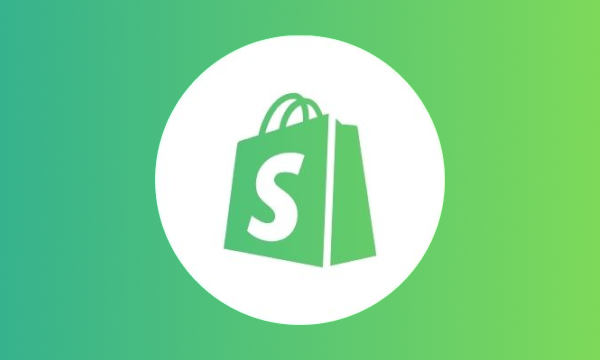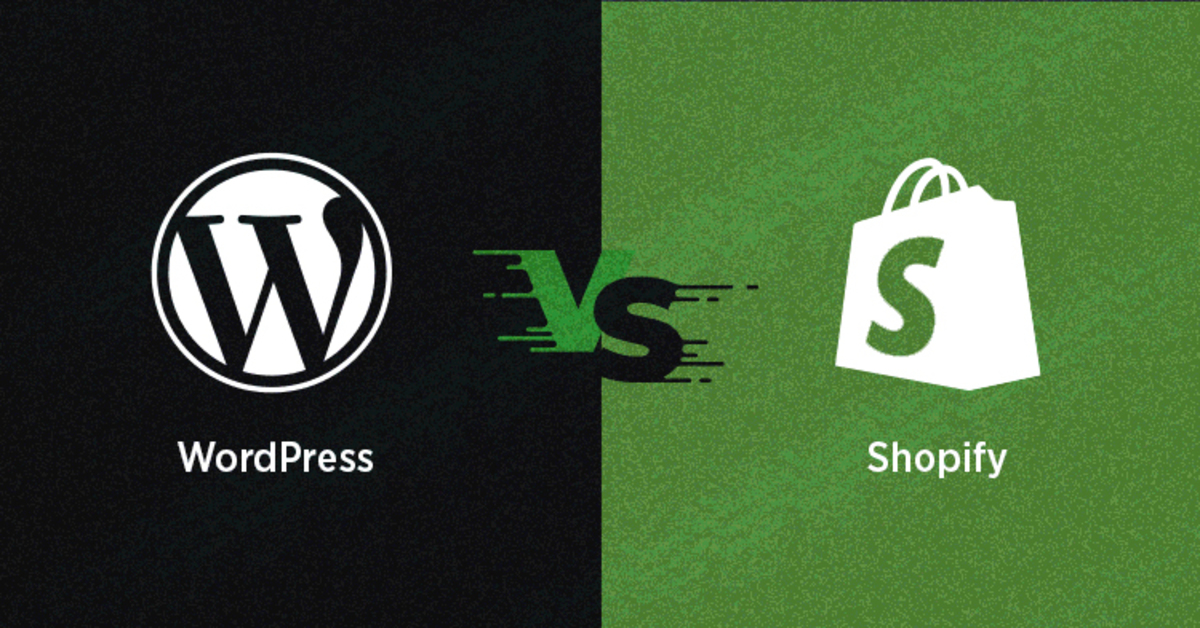Shopify vs Wix: Features, Pricing, and Performance Compared (2024)

Creating a website or setting up a new store is probably the biggest trend in the e-commerce industry. Considering the high time for digital transformation, literally every offline e-commerce business is moving toward this trend. And as an e-commerce business that is planning to go online, the journey won’t be as easy as it seems. Meanwhile, choosing between the different CMS platforms and website builders, especially Shopify vs Wix, stands as the biggest challenge for beginners.
Shopify and Wix, two of the biggest e-commerce giants, hold almost equal market share in the e-commerce website building space. To be specific, Shopify holds 25% of online e-commerce stores in the US, and Wix stands just second with 24%. However, the biggest difference between Shopify and Wix remains that the former is more focused on e-commerce businesses, while the latter is a multi-purpose website builder.
To end the battle of Shopify vs Wix, we researched a lot on the internet and put both these platforms on the test to find out which ought to be the best for e-commerce business. In our detailed analysis of Shopify vs Wix, we found some key information that can help potential e-commerce businesses decide which suits them better. So, let’s start with the basics of both these platforms!
What Is Shopify?
Shopify is an e-commerce platform that allows entrepreneurs to start, manage, and expand a business. It provides the tools to set up an online store, oversee sales, promote to customers, and process payments in both virtual and physical settings.
Shopify stands as a leader in the commerce world due to its attentiveness to the experiences of millions of business proprietors. By catering to both individual entrepreneurs and large-scale brands, Shopify has developed features and products that not only drive current businesses but also pave the way for the future of commerce.
What Is Wix?
Wix is a cloud-based website builder that makes it possible for anyone, even those without a background in coding. It uses a user-friendly drag-and-drop interface, allowing you to arrange your webpage elements visually without the need for code.
Wix offers a vast collection of ready-made templates to kickstart your website development process. These templates can be tailored to your individual style using Wix’s design tools. Additionally, users have the option to incorporate third-party apps and services to boost their websites’ capabilities.
It offers tools to help you manage your site, such as adding e-commerce features or appointment scheduling systems and promoting it with search engine optimization (SEO) tools. Wix is arguably the leading website builder globally, commanding an estimated market share of 46%.
Key Statistics on Shopify vs Wix
- Wix had nearly 200 million global users in 2020, while Shopify only had 100 million users that year. (Source: Tidio)
- Shopify powers over 1.7 million online stores globally, while Wix has over 220 million registered users. (Source: wix.com/shopify.com)
- Shopify reported $4.6 billion in revenue for Q1 2024, while Wix’s revenue stands at $337 million in revenue. (Source: wix.com/shopify.com)
- Shopify holds around 20% of the global market share in the e-commerce platform sector; Wix accounts for 21%. (Source: Statista.com)
Shopify vs Wix: Head-to-Head Comparison
If you’re thinking of developing an e-commerce website but are struck between Shopify vs Wix. This detailed head-to-head comparison based on different aspects will help you a lot in decision-making.
Shopify vs Wix: Pricing
The one thing we loved a lot about Wix was its offering of an entirely free plan. Meanwhile, Shopify does offer a 14-day trial plan, but you will be forced to switch to the paid plan after it expires.
However, Wix’s free plan doesn’t allow users to choose their own domain. If you wish to upgrade to Wix’s business and e-commerce, you can choose between three plans:
- Silver Plan – $75/month
- Gold Plan – $100/month
- Platinum Plan – $150/month
Here are some parameters that differentiate the benefits of each Wix plan offer:
- Storage: The storage available varies depending on the plan you choose; the more advanced plan you choose, the more storage you’ll get.
- Access To Apps: All Wix plans offer Site Booster, directories, an event calendar app, and a log-making app.
- Support: The premium support is only limited to Platinum and Enterprise plans.
At the same time, Shopify offers three plans to choose from, including:
- Basic – $29/month
- Shopify – $79/month
- Shopify Advanced – $299/month
Here are some parameters that differentiate the benefits of each Shopify plan offer:
- Storage: The storage limit in Shopify is unlimited in comparison to Wix’s 20 GB.
- Fee: Shopify has a minimal 2% fee in comparison to Wix’s no commission or purchase charge.
- Staff Account: Shopify offers up to two personnel accounts in comparison to Wix’s one administrator.
- Free: Shopify offers a 14-day free trial plan. However, Wix’s free plan doesn’t have any time limit.
- Shipping: Logistics companies, such as DHL Express, UPS, USPS, etc., offer up to 60% off on Shopify. However, there is no shipping offer available on Wix.
- Email campaign: Wix allows users to create up to 10 email campaigns. However, Shopify lacks this functionality. You may need to install third-party apps like Get Response or MailChimp to do so.
Ease of Use
Wix and Shopify are both accessible and manageable platforms that don’t require any specialized technical abilities to set up the necessary configurations. Wix is particularly beginner-friendly, while Shopify offers a straightforward platform with a user-friendly interface that makes managing an online store easy.

When comparing the ease of use between Wix and Shopify, Shopify stands out for its flexibility. It offers a range of dynamic features that are ideal for those looking to establish and start selling through an online store.
Moreover, Shopify is designed to be user-friendly, even for those with limited design knowledge. Even if your technical or design skills are limited, it won’t hinder your ability to establish an online presence. Additionally, those who are proficient in HTML and CSS will find that they can significantly influence web design expectations.
Shopify takes pride in being a hosted solution, which means users don’t have to worry about data security, web hosting, technical upgrades, or software installation.
On the other hand, Wix is particularly welcoming to beginners. The Wix template editor gives you full control, regardless of your skill level. Wix also offers users a Content Management System (CMS), making modifying their online presence easier.
Themes & Design
As you might expect, Shopify themes are specifically designed for e-commerce, offering a robust platform for this purpose. Each theme is meticulously crafted to attract users. The theme editor allows users to modify specific sections without the need to clone the theme, such as on a staging server.
The aesthetics and functionality of Shopify’s templates are truly impressive. They are elegant and sophisticated and offer more customization options than Wix. The cost varies between $140 and $180. However, excellent responsive templates are available at no charge for those on a budget, which could be a wise choice.

In comparison, Wix offers fewer themes than Shopify. However, Wix provides a broader range of general-purpose templates, making it a more appealing choice if your aim is to build a content-centric platform.
Additionally, the platform creates some exceptionally beautiful themes for online stores that focus on specific niches, such as jewelry and furniture.
Payment Options
When it comes to choosing between Wix and Shopify for online selling, both platforms provide a variety of payment options. Wix supports payment methods such as PayPal, Square, Credit Cards, Cash on Delivery (COD), and Debit Cards. On the other hand, Shopify offers a broader range of payment gateways, including PayPal, ApplePay, Amazon Pay, Stripe, and COD, and it even accepts cryptocurrencies.

Each platform has its own integrated payment gateway: Shopify Payments for Shopify and Wix Payments for Wix. When utilizing these built-in payment processors, both Shopify and Wix impose transaction fees, which are 2.4% and 2.9%, respectively.
Furthermore, if you decide to use a third-party payment gateway, Shopify will deduct a certain percentage from your sales. This percentage varies depending on your plan, ranging from 0.5% to 2%.
In contrast, Wix does not impose any additional charges when using third-party payment gateways. This makes Wix a cost-effective option for those who prefer to use third-party payment solutions.
Shipping
Both Shopify and Wix provide the flexibility to establish diverse shipping regulations. They both promote the provision of multiple shipping options to customers.
Shopify offers a comprehensive range of shipping solutions, from complimentary shipping to partnerships with alternative shipping providers. This ensures that users are never at a loss when organizing delivery through Shopify.
On the other hand, Wix’s approach is slightly different as it necessitates the use of third-party apps to assist users with international shipping charges. Furthermore, Wix lacks the feature of providing printable shipping labels when business owners monitor orders and establish tax rules for each product.
Dropshipping
Shopify is one of the few e-commerce platforms that robustly endorses the idea of dropshipping. It’s an extremely user-friendly solution that integrates seamlessly with various dropshipping apps.

Shopify is equipped with numerous features to assist you in managing your sales, marketing activities, and customer transactions, making it an excellent choice for those new to dropshipping.
On the other hand, Wix didn’t offer dropshipping support until recently. However, they have now introduced several integrations that facilitate dropshipping. These integrations include Modalyst, Spocket, Printful, and Printify.
Third-party Apps Integration
In terms of third-party app support, Shopify outperforms Wix. The number of eCommerce developers creating apps for Shopify far exceeds those for Wix.
While both platforms provide free apps to users, Shopify stands out with its vast collection of over 5000 integration apps, making it an ideal platform for businesses looking to scale. In contrast, Wix offers a limited selection of just over 50 apps.
Shopify’s apps provide businesses with an excellent opportunity to tailor their online stores to meet their specific needs. The Shopify App Store boasts thousands of apps designed to enhance the functionality of Shopify storefronts. As such, when it comes to third-party integrations, Shopify holds a clear advantage over Wix.

Marketing Features
While Shopify primarily depends on third-party apps for integration, Wix is a comprehensive marketing tool that enables users to manage marketing campaigns from a single location. It is available via a separate subscription.
SEO Capabilities
Both Wix and Shopify allow users to:
- Modify titles/descriptions – the title and text that appear in Google search results
- Customize URL slugs
- Add alt text to images
- Receive guidance through ‘SEO best practice’ prompts
Wix, being a versatile solution, has an advantage in this area. It provides keyword support, suggesting popular words or phrases that could be beneficial, a feature that Shopify lacks.
Blogging
Wix enables users to effortlessly create attractive blogs. Its only limitation is the accessibility of the archive that houses old posts for user reference.

Shopify has a robust blogging engine that allows users to establish and manage a feature-rich blog. The platform enhances customer engagement levels by keeping them informed about news and updates from store owners. Unlike Wix, Shopify does not have built-in analytics, social bookmarking, and search features.
Social and Media Integration
In recent times, consumers have developed a habit of searching everything online. However, Wix does not support sales across different platforms.
A significant distinction between Wix and Shopify is the multichannel integration offered by Shopify. This feature allows users to effortlessly link their online store with social media platforms like Twitter and Instagram and marketplace websites such as Amazon and eBay.
Customer Support
When it comes to customer support, Shopify clearly has the upper hand over Wix. Shopify offers round-the-clock assistance through email, chat, or phone. Their team is highly skilled, professionally adept, and genuinely committed to helping their customers.
In contrast, Wix’s standard approach to customer service is to direct users to a pre-existing article in their online knowledge base. From a web designer’s perspective, the limitations of Wix’s eCommerce platform can likely be traced back to the company’s origins.
Shopify was developed and focused primarily on crafting a hosted eCommerce solution. They placed a much greater emphasis on technical proficiency, resulting in a marketplace replete with fast, reliable, and attractive eCommerce templates.
Security
Both Wix and Shopify prioritize security, implementing numerous measures to ensure the safety of both business owners and their customers for secure online transactions. Regardless of the plan chosen, both Wix and Shopify include SSL protection. This feature secures your customers’ data when they submit information (like registration or payment details) on your site, and it’s also a key factor in Google’s ranking algorithm.
In addition, both Wix and Shopify are approved as Level 1 PCI DSS compliant, which means that users’ stores are automatically PCI compliant. Adherence to PCI is crucial for safeguarding payment information and business data and deterring fraud.

Potential threats to any website or online store include viruses, DDoS attacks, and more. Thankfully, Wix and Shopify have integrated security features to enhance the protection of their systems and the store.
While neither platform discloses the specifics of these defenses to prevent them from being easily hacked, it’s safe to assume that they are continuously working behind the scenes to maintain online safety for their customers.
Shopify vs Wix: Which One Should You Choose?
Both Shopify and Wix hold their ground as the best choices in terms of e-commerce site builders. However, in our evaluation, Shopify emerged as the superior option due to its comprehensive ecommerce offerings. Here’s why:
- Performance: Shopify surpassed Wix in all our performance evaluations.
- User-friendliness: The dashboard and website builder of Shopify proved to be more user-friendly than Wix, particularly when it came to theme alterations and personalization.
- App Store: Shopify’s app store is significantly more extensive, providing a wide array of extra features and integrations.
Wix has outperformed Shopify in terms of pricing and includes certain standard features that Shopify lacks. For instance, Wix allows the sale of digital products, a feature that necessitates an app on Shopify. However, when it comes to the overall ecommerce package, we believe Shopify has the upper hand.
FAQs
Is it Better to Use Wix or Shopify?
Shopify is preferred for extensive ecommerce needs, while Wix is ideal for beginners needing a simple website.
Should I Switch from Wix to Shopify?
If your business is expanding and requires advanced ecommerce tools, switching from Wix to Shopify could be beneficial. For this, you will need to hire a Shopify Expert, such as ShopifyAppDevelopers.
Is Shopify Better than Wix in 2024?
In 2024, Shopify will continue to lead in e-commerce, while Wix will remain a top choice for easy website-building.
Is Shopify Better for SEO?
Shopify provides comprehensive SEO features, making it a strong choice for businesses aiming to improve their search engine rankings.
Categories
Top Posts
- 110 Best Shopify Review Apps to Increase User’s Trust
Shopify.July 24, 2024
- 2Top 10 Shopify Competitors That Are Outperforming This E-commerce Giant in 2024
Shopify.July 22, 2024
- 3Is Shopify Good for SEO? (Detailed Pros and Cons)
Shopify.July 18, 2024
- 4What is Shopify? All You Need to Know About This E-commerce Platform
Shopify.July 15, 2024
- 5The Complete Shopify SEO Checklist to Boost Your Store Rankings (Guide for 2024)
Shopify.July 3, 2024










